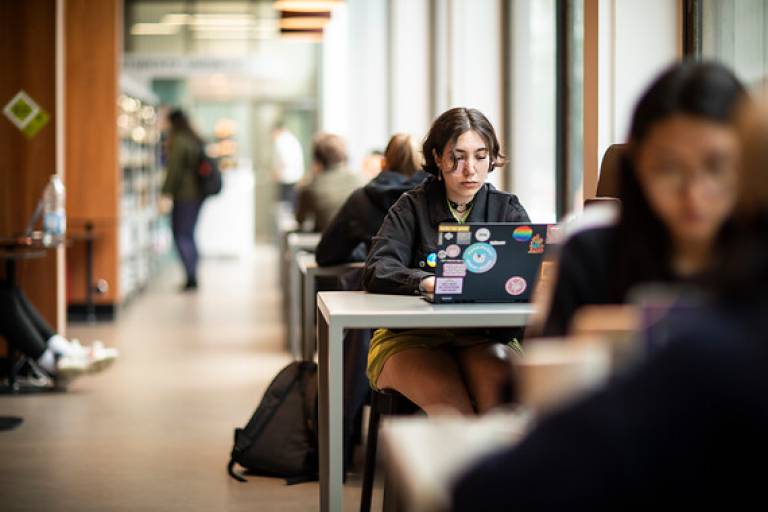‘I can finally see beyond the cost-of-living crisis': Exploring UCL's cost-of-living funding schemes
3 March 2023
With the cost-of-living crisis affecting students disproportionately, Student Journalist Eleanor Corney investigates what help UCL’s Students’ Union can provide to those who need it

There is a cost-of-living crisis in the United Kingdom. As measured by the Consumer Prices Index (CPI), consumer prices were 10.7% higher in November 2022 than a year before, meaning the average price of a Freddo bar in 2022 was 30p, 200% higher than the 1990 figure. The crisis is affecting people nationwide, but students are disproportionately affected, with many living alone and facing increasing rent prices, extortionate food prices and university fees. In the 2020/21 academic year, an astonishing 370,000 full-time higher education students were studying in London. According to the Natwest Student Living Index, London is the city the 5th most affected by the cost-of-living crisis for students. There are around 40 institutions in the city, and UCL is one of many making significant changes to help their students financially.
UCL's Students’ Union has done some polls on their social media channels that have provided insight into how the cost-of-living crisis affects students at the university. Housing and accommodation prices are rising in the private sector, utilities and bills are rising, and the cost of groceries is rising, meaning students are depriving themselves of essentials to cope.
Caitlin Chatterton, a third-year History student, has spoken to me about how the cost-of-living crisis has affected her. “I have felt it [cost-of-living crisis] the most with food shopping, as there are many products that have gone up significantly, so I no longer buy them.”
How you can get help with the cost-of-living crisis
Student Union UCL has introduced three major funding schemes to help students cope amid the cost of living crisis. The introduction of the Sarah Douglas Hardship Fund, the Student Activities Participation Fund and the Gender Expression fund has provided opportunities for students to receive funding to help them during their studies and outside the realm of education. This wintertime, more than ever, this help is essential.

For example, the Sarah Douglas Hardship Fund, created in 2013, is to help UCL students who are experiencing financial difficulty and have no other form of support available. Previous awards have been granted for use towards accommodation deposits, rent payments, transport costs, subsistence costs, childcare fees, and to purchase specialist supplies or equipment.
A recipient of the fund, who wishes to remain anonymous, has spoken to me about the effect this fund has had on them this wintertime. “Christmas is hard for my family and I usually, but during the cost-of-living crisis we have really felt the strain…” she says. “This funding allowed us to buy food and most importantly have the heating on during the cold winter months.” Furthermore, the student stated that the scheme helped them to see beyond the cost-of-living crisis, allowing them to feel as though they could go into the New Year feeling better supported.
The Student Activities Participation Fund, according to the UCL Students’ Union’s website, is a pot of money current UCL students can apply for to help enable them to take part in Students’ Union UCL clubs and societies as well as any other co-curricular or extra-curricular activities. Financial barriers can be challenging for some students and should not prevent them from having unique co-curricular and extra-curricular experiences and opportunities.
““Winter is an expensive season, and the extra costs stop me from attending societies and meeting people. I have the opportunity to maintain a social life now.”

The Gender Expression Fund is for transgender and gender non-conforming students and helps them cover the associated costs. According to the UCL Students’ Union’s website, grants can be used to purchase gender-affirming products such as clothing, binders, packers and beauty products. Grants can also be used towards travel to medical or therapy/counselling appointments.
This fund has helped many students with the cost of gender-affirming care, allowing them to use their money to cover the rising costs of wintertime. A recipient of the fund says that “the Gender Expression Fund has saved my life. I was able to buy a binder with the funding, and I feel much more confident in myself.”
““The Gender Expression Fund has saved my life. I was able to buy a binder with the funding, and I feel much more confident in myself.”
UCL Students’ Union’s Advice and Advocacy Manager Danielle Swanson highlights how how these schemes will help the most disadvantaged students this wintertime. “Since the beginning of December, we have had 70 students in contact about the emergency grant and been offered an appointment. We have met with 39 students; out of them, 29 were offered emergency grants. The students who have received the grant have used it for food shopping, paying utility bills, phone bills and towards travel costs.”

She also states that in January 2023, the SU Advice Service took on two new specialist Money and Budgeting advisors, starting with their money and budgeting advice service. As their capacity increases, more students will be offered help.
Funding schemes have not been the only initiatives introduced to help students during the cost-of-living crisis. For example, the George Farha café has offered budget-friendly breakfast and lunch options and implemented free hot water in all cafés on campus.
As a Union, the Students’ Union UCL has been asking students about their experiences on their Cost of Living Crisis page, where they have listed three fundamental policy changes they are working towards. Firstly, they are aiming to freeze rent prices by backing the Mayor’s rent freeze campaign, which will see a continued freeze of rent prices in the 2023/24 academic year in UCL accommodation and across private halls too. Secondly, eating well on a budget and finally, travelling economically. For example, they are lobbying for discounted tube fares, free bus travel and more inclusive discounts on Santander cycle hire to make travelling to UCL easier for students.
Altogether, these schemes are ensuring that UCL students don’t have to face the cost-of-living crisis alone this wintertime. If you are a student who is currently struggling with the cost-of-living, help is available.

About the author:
Eleanor Corney is a third-year undergraduate student studying for a BA in European Languages. She hopes to become a journalist and loves to write articles about Eastern European politics in particular. She lives in Dagenham with her parents and two cats. Find out more about the UCL VPEE Student Journalism Scheme here.
 Close
Close

